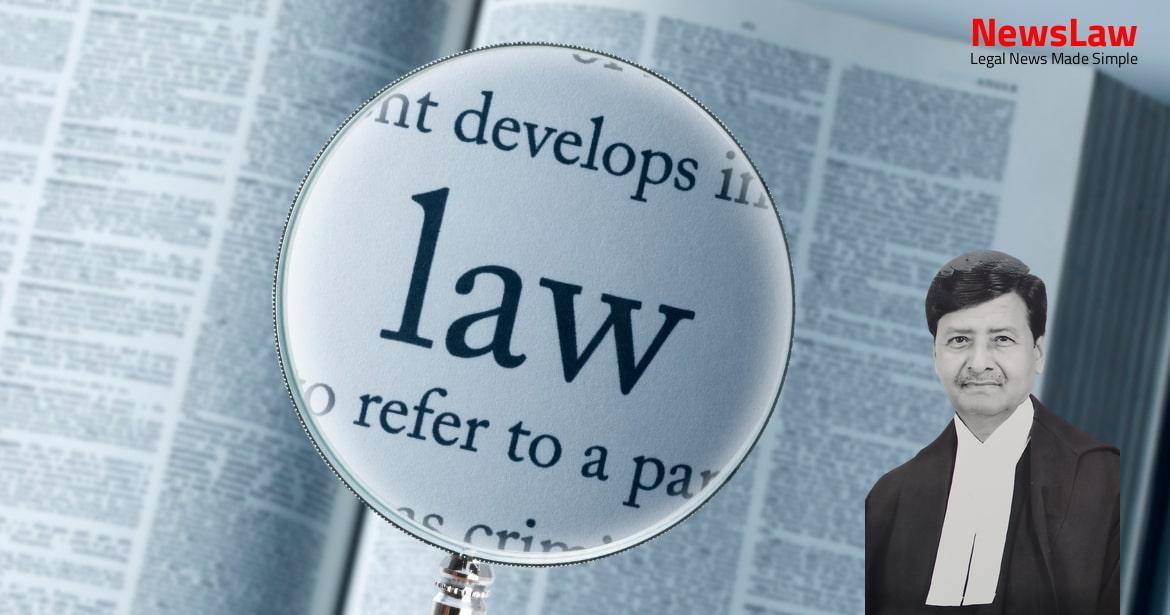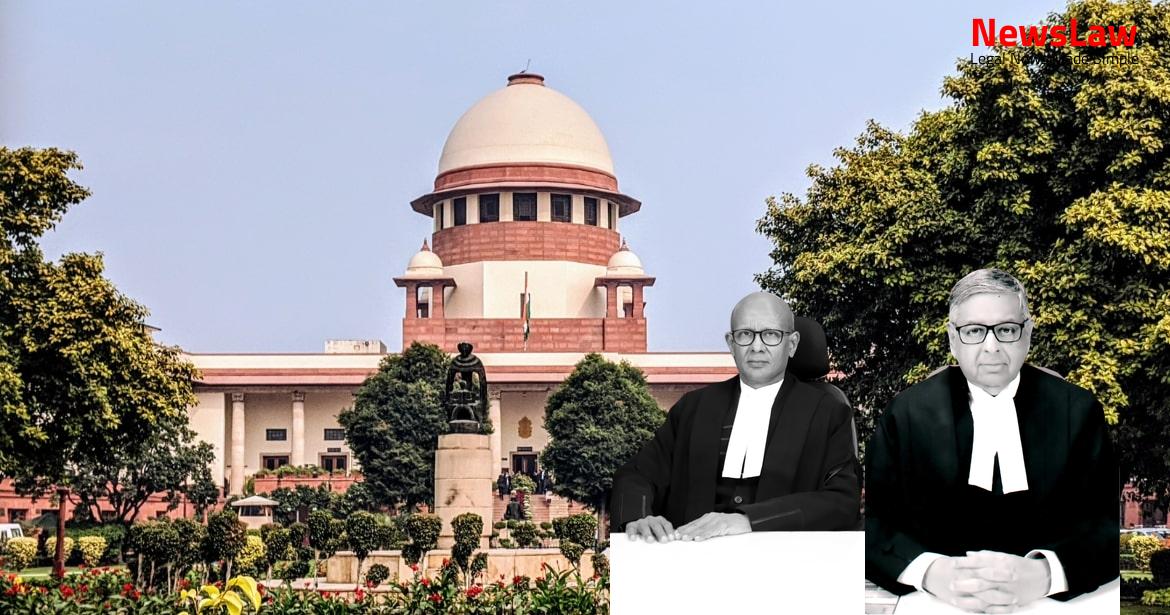In a significant legal case, the High Court passed a judgment regarding the appointment dispute concerning select list candidates. The case involved a dispute between candidates from villages Bakore and Chak Koura. The High Court’s decision has implications for the appointment process and the rights of the individuals involved in the case.
Facts
- A Select List was prepared in December 2002 including candidates from both villages, Bakore and Chak Koura.
- Two posts were vacant in Middle School for Boys and Girls at Bakore, one each.
- Government Order dated 24 August 2005 clarified the expression ‘village’.
- RET Scheme was notified by the State Government on 28 April 2000.
- Regularization of the appellant was done on 10 September 2008 after five years as RET teaching guide.
- Residents of Chak Koura objected to candidates from Bakore village being placed above them.
- Announcement for engagement as RET teaching guides was made seeking local candidates from respective villages.
- Director of School Education approved engagement of the appellant as an RET teacher at Bakore in response to the Contempt Petition.
- Select List had the appellant at Serial No 5 and fifth respondent at Serial No 14.
- High Court allowed appellant’s Writ Petition for regular teacher benefits on 1 July 2013.
- State Government instructed implementation of the judgment on 28 August 2014.
- Decision was made to prepare a combined panel for both villages, Bakore and Chak Koura.
- The Single Judge directed the State to consider the case of the fifth respondent for appointment as an RET in Government Middle School, Bakore.
- The High Court’s direction on September 9, 2003, instructed authorities to make appointments based on the recommended panel of candidates, with a condition for verification of habitation.
- The High Court upheld a judgment dated December 15, 2014, setting aside the appellant’s appointment under the Rehbar-e-Taleem Scheme.
- The High Court, on December 15, 2014, allowed the Writ Petitions filed by the fifth respondent, leading to the quashing of the appellant’s appointment as an RET Teacher.
- The Letters Patent Appeal was dismissed by the Division Bench on December 31, 2018.
Arguments
- The appellant was appointed following the first order of the High Court in her Writ Petition against the threat of coercive action in a Contempt Petition.
- The condition of eligibility in the RET Scheme was clarified in a Government Order dated 24 August 2005, requiring the candidate to belong to the village where the school is situated.
- The fifth respondent, entitled to the post upon the invalidation of the appellant’s appointment, should be issued a direction to that effect.
- Delay issue raised as the fifth respondent was unaware of the appellant’s appointment when the initial Writ Petition was filed.
- An unexplained delay in challenging the appellant’s appointment was pointed out, with nearly sixteen years passed since the Select List was drawn up.
- No objection was made to the initial appointment of two candidates from village Chak Koura, and the appellant was not impleaded in the original petition despite being mentioned in the Select List.
- A second Writ Petition was filed in 2011, four years after the appellant’s appointment, to challenge the same.
- Argument made that there was no breach of the RET Scheme in considering candidates from village Chak Koura.
- The High Court’s order calling for verification of habitation place could have revealed the appellant was not a resident of the concerned revenue village.
- Claim made that the fifth respondent, belonging to village Bakore, was the rightful candidate for the post over the appellant.
- Considering the appellant’s age and proximity to superannuation, it was argued quashing her appointment at this stage would not benefit the fifth respondent.
- Second Writ Petition filed after clarification by the State about the appellant’s appointment in the earlier case.
Also Read: CRPF Act: Validity of Rule 27 for Compulsory Retirement – Case of Head Constable vs. CRPF
Analysis
- The appellant was appointed after the first two candidates resigned from the position.
- A four-year delay in contesting the appointment disentitled the fifth respondent to claim any relief.
- The first challenge to the appellant’s appointment was made four years later in the Writ Petition of 2011.
- The fifth respondent chose not to challenge the appellant’s appointment in a Writ Petition filed in 2009.
- Proximity of the two villages and the absence of a school in village Chak Koura, to which the appellant belonged, is an important consideration.
- The fifth respondent cannot claim a right of appointment based on a Select List of 2003 after sixteen years.
- The appellant was regularized in service in 2013 before a judgment holding her ineligible for appointment.
- The Village Education Committee made a bona fide decision to draw up a combined list for two villages due to the absence of a school in one village.
- If a bona fide decision was taken by the government to approve the appellant’s appointment following the High Court’s decision, it cannot be faulted.
- The Select List cannot have an indefinite life to be operated at an uncertain future date.
- Unexplained delay in filing the Writ Petition by the individual
- Significance of initial appointments being of individuals from the village of Chak Koura
Also Read: DAMEPL vs. DMRC: Curative Petition and Arbitral Award Restoration
Decision
- Equities have favored the appellant who has been regularized in service and has continued for nearly six years.
- The appointment of the appellant is not vitiated and stands on its merits.
- The fifth respondent cannot claim a vested right to appointment based on the Select List of 2003 at this stage.
- As a result, the Writ Petitions filed by the fifth respondent are dismissed.
- The appeal is allowed, and the impugned judgment of the High Court dated 31 December 2018 is set aside.
Case Title: MEENA SHARMA Vs. THE STATE OF JAMMU AND KASHMIR
Case Number: C.A. No.-009183-009183 / 2019



